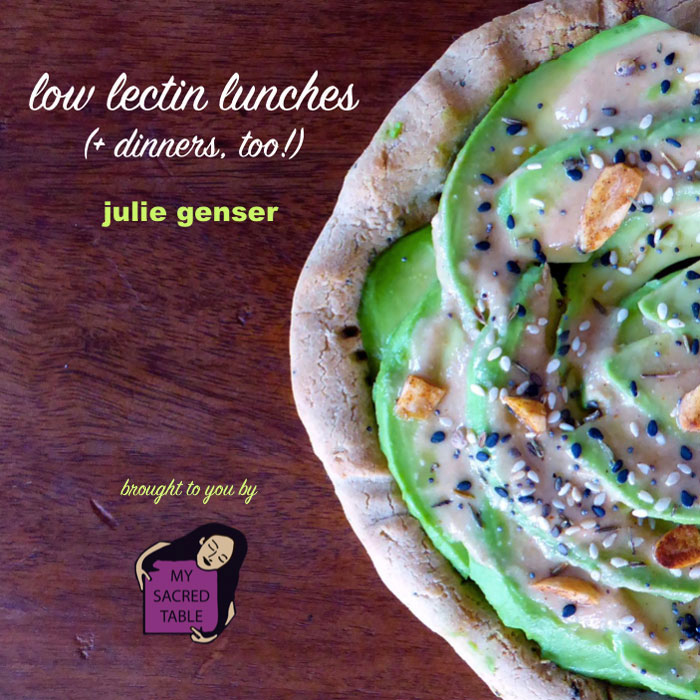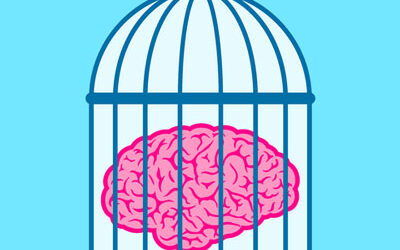
About a year ago I stumbled across an article that talked about lowering tumor necrosis factor alpha (TNFα) — a cell signaling protein (cytokine) associated with systemic inflammation — through diet. It caught my eye, because my TNFα levels were very high as was my C-Reactive Protein, another systemic inflammation marker. A few years earlier, I had been diagnosed with severe, progressive Rheumatoid Arthritis and was warned by doctors that I would end up in a wheelchair if I did not go on a “biologic” – a strong immune suppressant that had serious risk factors I wanted to avoid. I also had Crohn’s disease for over 40 years but my systemic inflammation was sky high and I was desperate for help that did not involve medications that would put me at risk for cancer or serious infections.
This article mentioned Dr. Steven R. Gundry and his Plant Paradox diet, an anti-inflammatory approach focused on removing plant lectins and sugar from the diet. Dr. Gundry explained that lectins are one of plants’ self-protective defense mechanisms against predators. These small glycoproteins, when ingested via the plants or animals who eat them, cause havoc in our system by attaching onto sugar molecules in our carbohydrate-rich gut lining. There, they literally dig microscopic holes in our intestinal wall, creating a condition known as Leaky Gut. Once the intestinal wall has been breached, lectins get through and are labeled as foreign invaders by our immune system, initiating an immune response. This is how autoimmunity begins.
After a cursory look at the Plant Paradox diet, I was dismayed to find out some of my regular go-to foods were not allowed. No more zucchini, cucumbers or tomatoes. But I was intrigued enough to give it a try. After the first few weeks of incorporating as many foods as I could, it seemed to be helping my chronic pain issues but I was challenged by the limited food choices and lower caloric intake. I found myself cheating A LOT. I’d get so hungry that I would binge on rice and beans and potatoes just to feel full. Then the pain and dysfunction would come back in a big way. I knew the diet made sense on paper, but I was having trouble sticking to it consistently.
I’d been planning a cookbook for years because I’m a huge foodie and love talking about, preparing and eating food, but decided then and there to make the low lectin approach a focus of my books. The driving force was wanting to have a solid library of meals that I loved that I could make everyday and not be tempted to fall back on the convenient store-bought prepared + packaged foods.
I got to work testing recipe ideas and photographing the meals. I cooked something new every day for two weeks straight and was able to eat 100% low lectin meals 3x day the entire time. I woke up one morning and realized I had been mostly pain free for the duration – this was huge! I had been suffering for years with extreme fascia pain in my upper back and neck, that migrated every day and made sitting up, standing, walking, and sleeping very painful. I’m only 52 but felt like I had a 90 year old body. Creating the cookbook felt like it gave me my body back!
After those two weeks, I started my cheating ways once again, as I was spending my days on the computer preparing my cookbook and did not have the energy or time to prepare 3 full meals a day from scratch. The joint + fascia pain returned. I had never been so happy to be in pain — it provided living proof that the diet worked! Even more excited and motivated to stay on the meal plan and complete my eBook series, I was able to publish my first eBook entitled Low Lectin Lunches (+ Dinners, Too!) this week.
In Dr. Gundry’s book The Plant Paradox, he relates story after story of patients with Crohn’s disease who became asymptomatic in just weeks or months after going on his diet. I feel confident that I, too, can heal the inflammation in my gut if I can just stick to the diet 24/7. To that end, I have plans to create many more eBooks focusing on a mostly grain/gluten/processed-soy/refiined-sugar/nightshade/lectin free diet. The diet allows certain dairy but I personally don’t eat it. Many of the recipes are also prebiotic-, resistant starch- and probiotic-rich. I’ve studied functional fermentation which teaches the science behind fermentation and how to create mold-free, low histamine probiotic-rich foods and my cookbooks will share those techniques as well.
As someone who has been on restriction diets for over 20 years now with a history of very severe and extensive food sensitivities that once caused life-threatening anaphylactic reactions, this dietary approach feels like food freedom. While the diet focuses on low or no lectin foods, there are many ways to make the higher lectin foods less inflammatory. By using a combination of peeling, de-seeding, soaking, sprouting, fermenting, and pressure cooking higher risk foods, you can essentially remove lectins and other anti-nutrients, making previously banned foods acceptable (especially once you’ve achieved a certain level of gut healing). So there is the distinct possibility of opening up the food gates, so to speak, as you progress in your healing.
My first eBook Low Lectin Lunches (+ Dinners, Too!) is a 60-page collection of 11 meal ideas, containing 32 recipes (each meal has several components). It is a full color, downloadable PDF. I’m offering it at a special introductory price of only $11 through February 28. You can purchase it here: MySacredTable.com.
I’m already working on the next eBook which will be all about bread! I have lived without bread products for many, many years and it’s the one thing I miss so. The low lectin diet has introduced me to cassava, or yuca, a root tuber that is very versatile. This next eBook will share pizza, flatbread, bagels, breadsticks, French toast, and many more variations of bread, using cassava flour or other low lectin ingredients as the base. I’m also working on a pasta book — 100% plant based — as well as a 3-day meal plan.
This eating approach has been life changing for me and I can’t wait to hear what it does for you! If you struggle with chronic pain issues, inflammation, digestive upset and other symptoms caused by a leaky gut, I highly recommend giving it a try to see how your body responds.
Please visit my website MySacredTable.com to sign up for the newsletter so you can hear about upcoming eBook launch dates and enter giveaways for free cookbooks, foodie t-shirts and other fun swag!










0 Comments